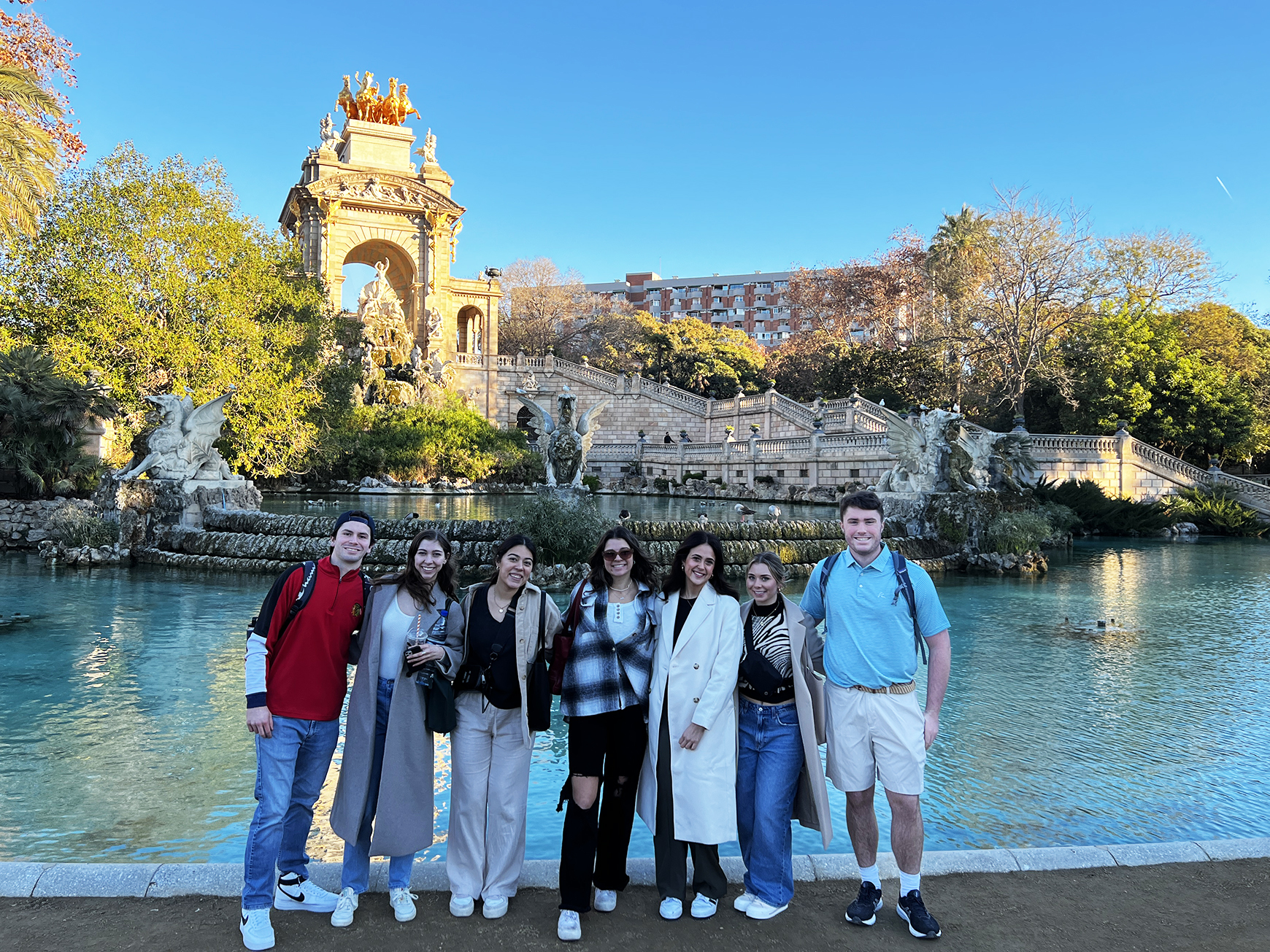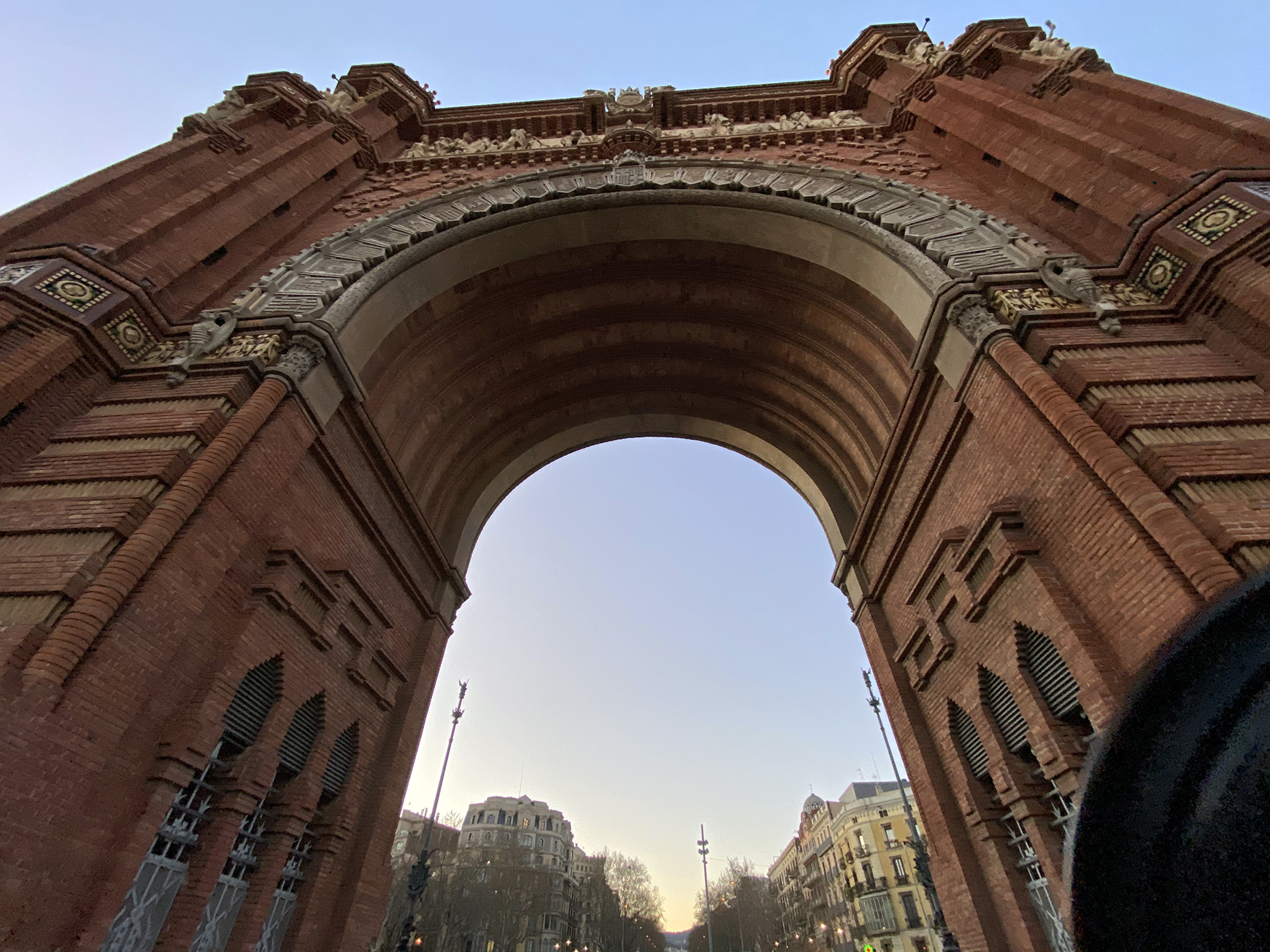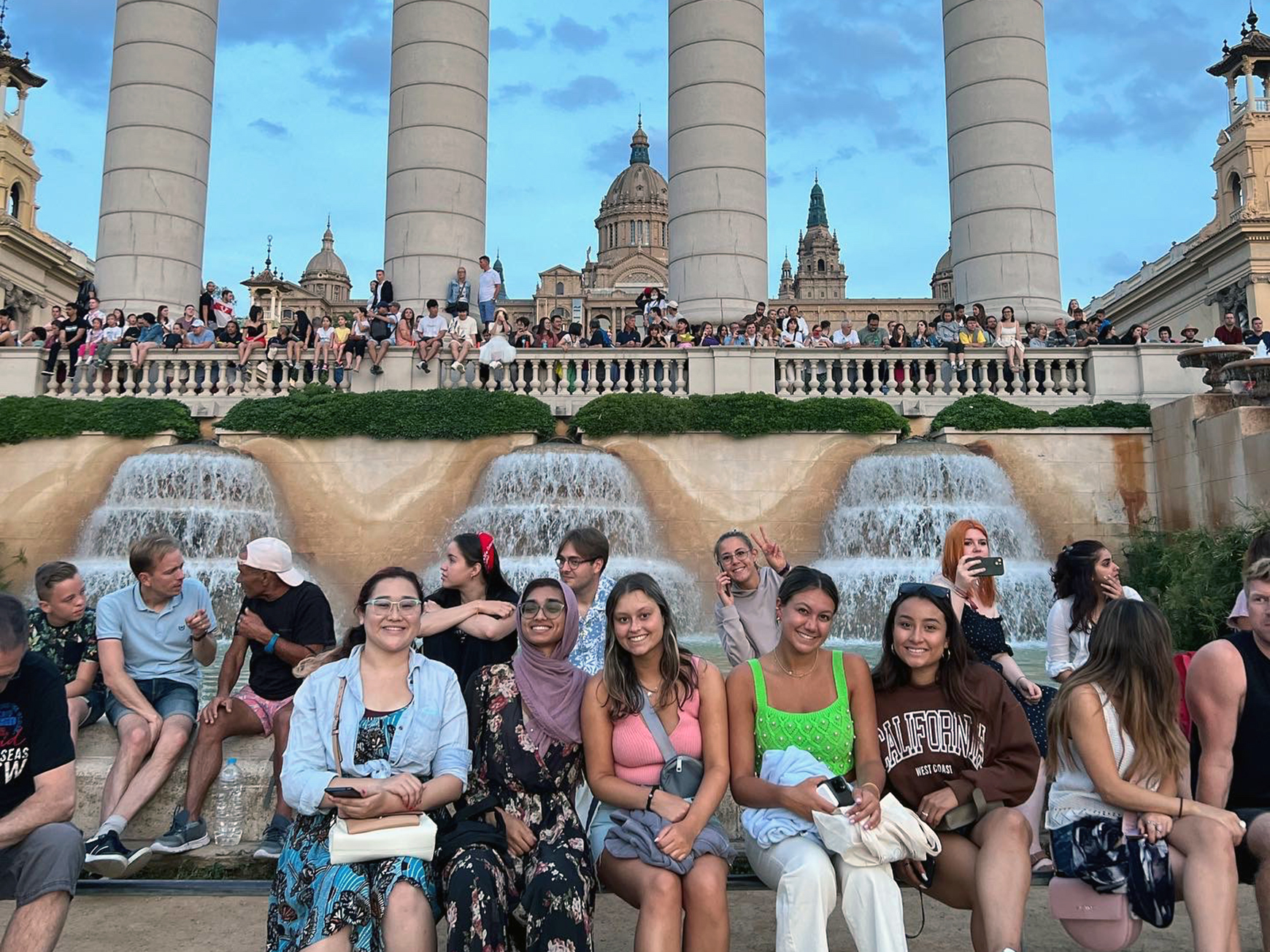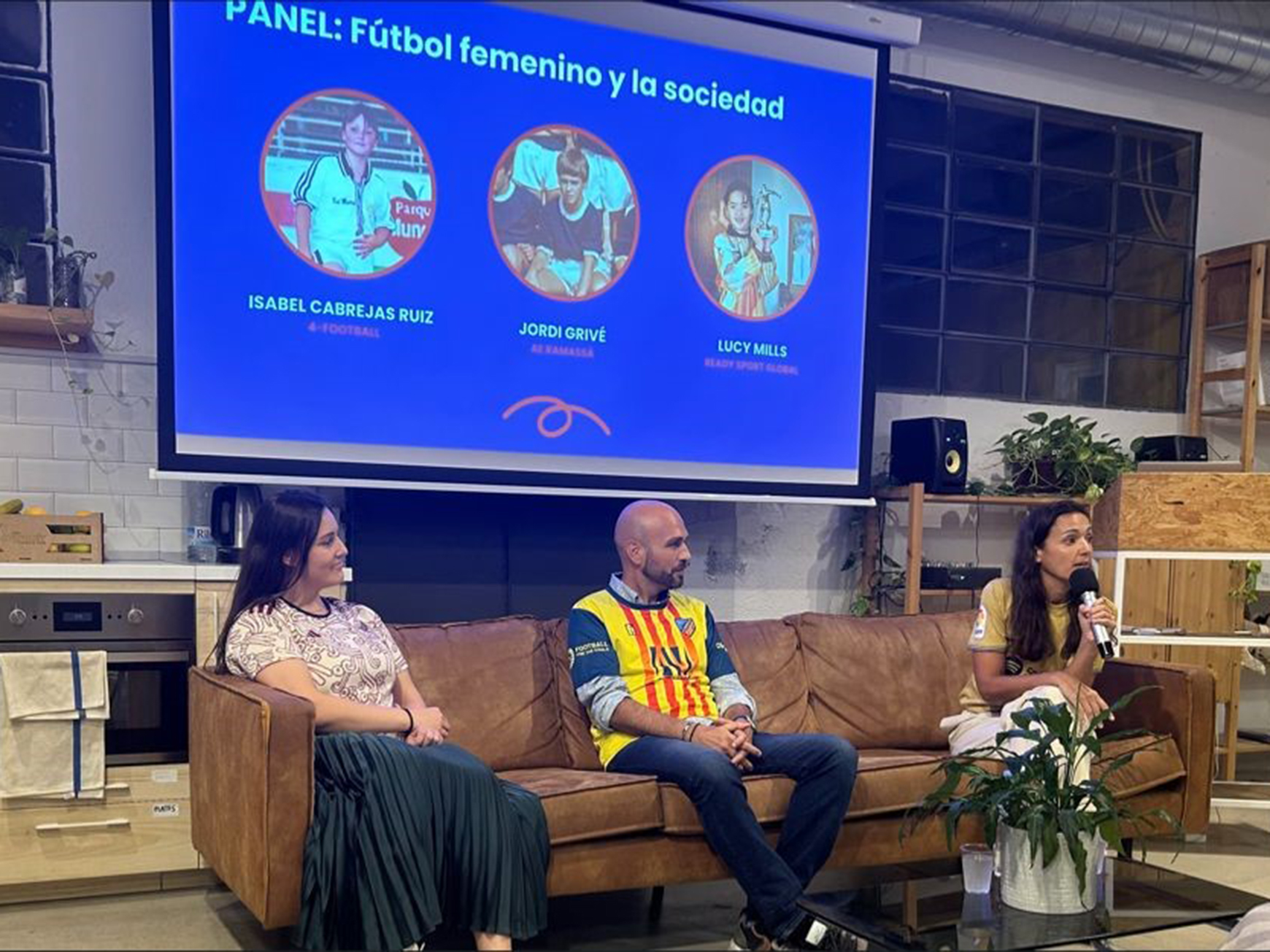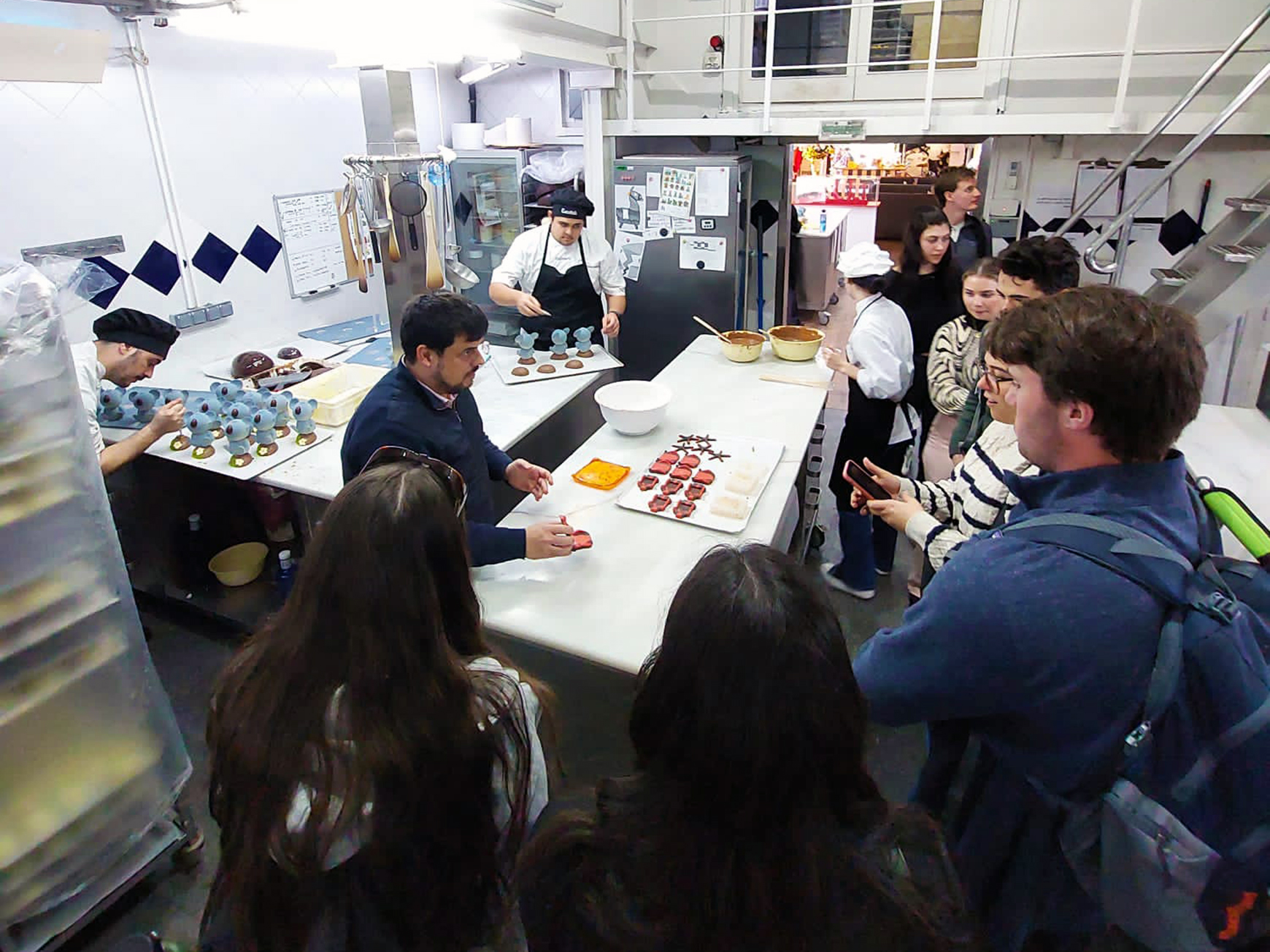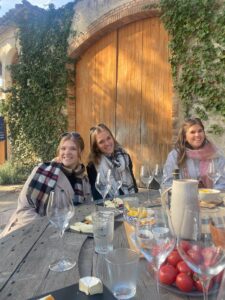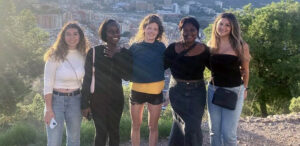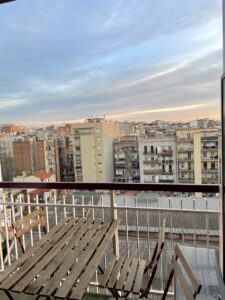Barcelona, Spain
IFSA Summer Internships in Barcelona
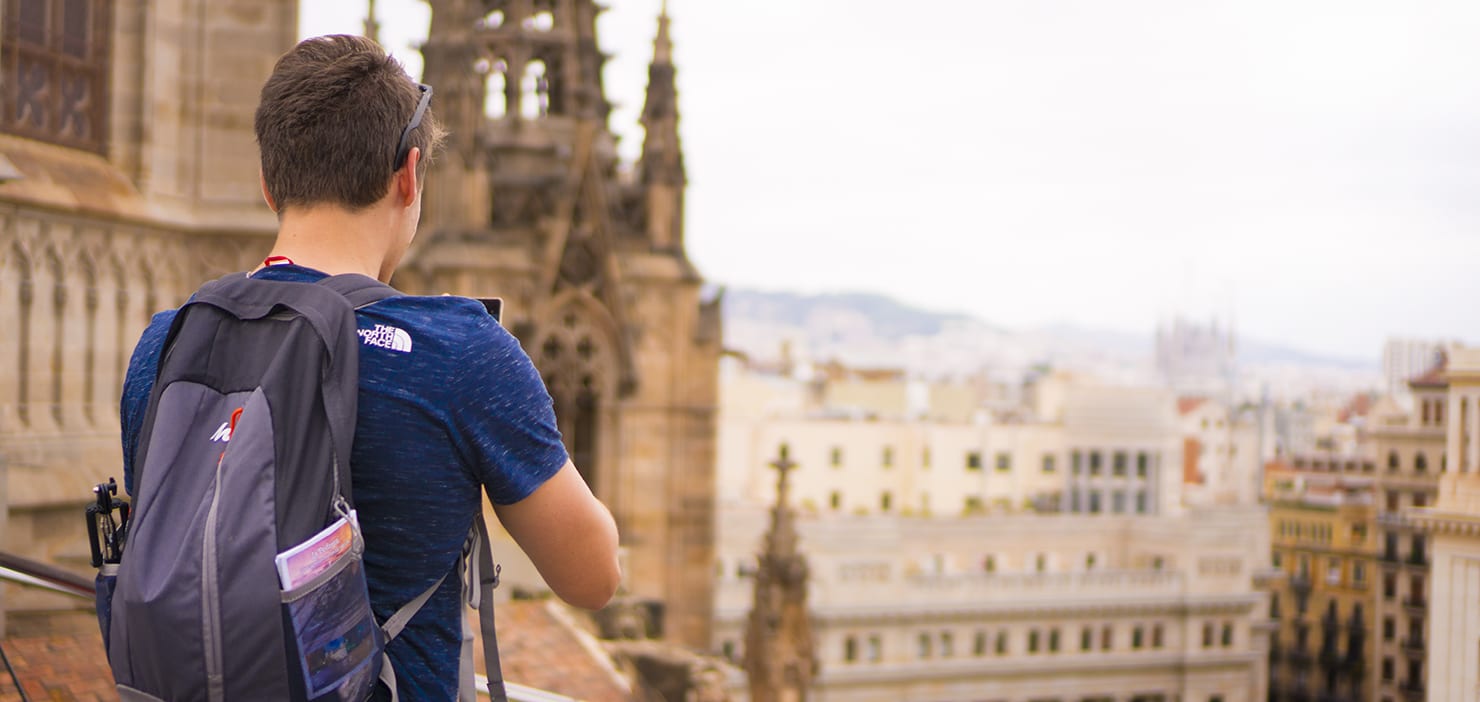

Program Overview
HANDS-ON EXPERIENCE ON THE MEDITERRANEAN
Boost your resume with an eight-week internship in beautiful Barcelona, an ideal place to explore Catalan and Spanish culture. Known for its art, architecture, food, festivals, soccer, and beaches, the city has treasures galore to explore while you are gaining international professional experience.
With a variety of sectors that include technology, finance, tourism, and design, Barcelona is full of opportunities. Add an optional elective to earn additional credits.
This is an exclusive IFSA-Designed Program. Learn more about these affordable programs here.
Details at a Glance
Application deadline
Minimum GPA
2.00
Credit load
3–7
Housing
Apartment/Flat, Residence Hall/Dormitory
Instruction language
English
Language prerequisites
None. Four semesters of university-level Spanish or equivalent for some internship placements.
Visa required?
In some cases. Learn more.
Academics
Enhance your learning and develop marketable skills with an eight-week Summer Internship in Barcelona.
International Internship Seminar
Language of Instruction: English
All internships include participation in the International Internship Seminar, which covers 15 hours of online asynchronous Canvas modules to provide structured opportunities to reflect on the practical experience of the internship, learn more about your host country’s business culture, and further develop the professional skills needed for a successful transition from undergraduate coursework into a career or graduate school. Plus, you will engage with an online global cohort of IFSA internship participants, gaining exposure to business cultures around the world. Seminar is taught in English. (3 U.S. semester credit hours)
OPTIONAL CLASSES
You may enroll in one additional class. Not all classes may be offered in a given term. Click on each link below for a detailed class syllabus.
The Economics of Professional Soccer
Language of Instruction: English
Soccer is the most popularly played and supported sport in the world. Professional soccer is both a globalized economic market and a cultural force for social change. The global soccer ecosphere is complex and includes athletes, clubs, leagues, federations, sponsors, investors, owners, fans, consumers, and companies and start-ups. The revenue flowing into the game are on an upward trajectory, especially thanks to the technology and innovation boom of the last decade. FC Barcelona, one of the top soccer brands in the world, was valued at more than $1.5 billion in 2020 and has fans around the world. Meanwhile, football is recognized as a powerful tool to improve lives and communities and contribute to the United Nation’s Sustainable Development Goals. This class explores the complex and integrated economic and social dimensions of professional soccer in Spain and worldwide. (3 U.S. semester credit hours)
Essential Spanish
Language of Instruction: English and Spanish
If you’ve never studied Spanish before, you can take this optional, introductory class in Spanish language and Catalan culture. By introducing key words and phrases and venturing out into the city to practice them, you’ll gain essential skills to communicate effectively and navigate in a new culture. (1 U.S. semester credit hour)
Food Culture and Spanish Society
Language of Instruction: English
Living in a time where food is no longer limited to home and restaurant kitchens, it is worth reflecting about the place food has in a globalized world. The study of food is a common topic, and several disciplines have approached it through a wide set of theoretical interpretations and methodological approaches. Even though we need food to survive and it is present in every society and culture, we cannot take for granted that we eat the same food for the same reasons at the same time; or assume that food is available everywhere with the same quality and under the same conditions. In many respects, food is also a matter of national security and an alternative for economic growth. Furthermore, food is an integral part of national and local identities, as much as of our heritage, as it is a product for tourism consumption. Understanding food in culture in society is therefore a local and global concern. This class examines all of these issues from anthropological and sociological perspectives and draws on the rich culinary situation of the class in Barcelona throughout. (3 U.S. semester credit hours)
Identity and Politics in Spain
Language of Instruction: English
After the collapse of the Soviet Union in 1991, many authors and intellectuals proclaimed the end of ideologies and the rise of identity as the new central element of existence in the West. Thirty years later, identity is back, nationalism, LGBTQ+ rights, feminist movements, Black Lives Matter, groups all over the planet asking for fairer representation. Spain is no exception to that reality. Since the 19th century, with the rise of both Catalan and Basque secessionist movements, along with the articulation of a fiercely centralistic Spanish Nationalism, the identity question has been on the political agenda every now and then. But since the Spanish accession to the European Economic Community (EEC), in 1986, the Spanish identity is coexisting with many other identities within the European frame, and not always the coexistence is peaceful and comfortable. This class examines the different levels of identity that Spanish people profess and how these different levels affect politics, economics, and society since 1975, when the Spanish dictator Francisco Franco died. (3 U.S. semester credit hours)
Sustainability and the Global City
Language of Instruction: English
This class introduces urban sustainability from multiple disciplinary perspectives. It aims to provide students with the theoretical and methodological tools with which to evaluate potential for sustainable urbanism. Focusing on Barcelona alongside comparative global case studies, students will be exposed to urban planning and both natural and built environments in order to evaluate the common challenges and successes related to sustainability efforts. Through experiential earning opportunities, students will develop first-hand context as they examine various facets of sustainable urbanization in Barcelona. (3 U.S. semester credit hours)
Language Requirement
For some internship placements, you must have a specific language level. Please visit our Language Requirements page for more details. If you have questions about whether you qualify, contact your IFSA Enrollment Counselor.
INTERNSHIPS
IFSA internships include real-world work experience, along with developing intercultural skills and experiences that are key to personal, academic, and professional success. Expect to devote a total of 120 hours working with your host organization, with supervision from your seminar instructor, coordinated by on-site IFSA team members. In addition, interns complete the International Internship Seminar for 3 U.S. semester credit hours. Internships are not remunerated.
There are nearly 10,000 multinational companies operating in Catalonia with Barcelona being the hub and capital city. The leading industries include chemicals, pharmaceuticals, automotive, electronics, and appliance manufacturing. Barcelona is the second most popular startup hub in the European Union. Among our internship partners are local start-ups in Barcelona.
With IFSA, your goals are carefully considered, tailoring the placement process to ensure the best possible fit. Keep in mind that final placements depend on your skills, prior experience, and availability. Although every effort is made to match your placement with your preferred field or area of business, it can’t be guaranteed. Most internships are conducted in English. If you have had at least four semesters of Spanish language instruction, ask your IFSA Enrollment Counselor about opportunities to conduct your internship in Spanish.
Application. After you submit your application, resume, and IFSA Internship Interest Form, an IFSA Enrollment Counselor and an on-site IFSA Team member will work with you to identify your professional strengths, review your goals, and refine your internship interests to establish a match. From there, you’ll have an interview with your potential internship host. You will be provided with tips and resources to prepare for your interview. Note: Multinational or global organizations often require a formal internal internship application process that is very competitive, in addition to the IFSA process.
Sample Placements. The following are examples of internship areas and types of roles available for IFSA students in Barcelona. Placement options vary from term to term.
- Arts: Administration, Market Research, Social Media Development/Marketing, Web Design/Content
- Education: Administration, Policy Making/Processes, Social Media Development/Marketing, Web Design/Content Writing
- Healthtech: Business Development Planning, Client Outreach, Database Development, Market Research, Social Media Marketing, Trade Show Support, Web Design/Content
- Human Resources Management: Administration (Interviews/Postings/Contracts), Application Review/Hiring Process Support, Database Design/Maintenance, Document Filing, Policy/Procedure Process/Improvements/Communications, Social Media Marketing, Support Design of Individual Development/Teamwork Activities/Events
- Marketing: Brand Management/Design, Content Writing, CRM Analysis, Event Management, Market Research, Public Relations, SEO, Social Media
- Non-Profit Organizations: Administration Support, Competitive Market Basket Research, Data Analysis/Reporting, Economic Analysis, Fundraising Campaigns, Human Resources, Social Media Development/Marketing, Web Design/Content Management
- Sustainable Energy: Data Analysis/Statistical Analysis for Business Decision Making, Market Research, Project Development/Management, Social Media Marketing, Web Resources
- Tourism and Hospitality: Business Management, Client Advisor, Customer Service, Events Assistance, Public Relations, Social Media Marketing, Sustainability Strategies, Web Design/Content
APPLICATION REQUIREMENTS
Eligibility
- You must be at least 18 years of age. Students under 18 may be accepted on a case-by-case basis.
- You must be currently attending or recently graduated from a U.S. or Canadian community college, technical college, two-year college, four-year college, or four-year university.
- You must have completed at least one (1) full-time semester of study at your home institution before the beginning of the term.
Recommendation Letter
Not required. An internship site may request a reference letter before placement is finalized.
TRANSCRIPT
Upon completion of your program, IFSA will send an official Butler University transcript to your home university with your coursework converted to the U.S. semester credit hour system. You will also have access to an unofficial transcript in your IFSA Student Portal. The transcript reflects classes taken, credits attempted, and grades earned during your term abroad. This service is included in your study abroad program at no additional cost. See our Transcripts page for more information.
Excursions
Activities and excursions are designed to pull you into the communities you visit and encourage cultural connections of every kind. There’s no extra fee to participate in these optional outings—everything is included in your program fee.
Below are a selection of activities and excursions from previous terms; options may vary for your program. Due to the seasonal nature of many of program activities, we cannot guarantee a specific activity or excursion will be available in a given term or program.
Activities
- City-as-Text: These activities (museum visits, street art tour, visiting different neighborhoods) will use the city of Barcelona as the frame to understand socioeconomic, artistic, and cultural aspects of the city.
- Architecture and Design: Barcelona’s colorful, distinctive, and unique architecture successfully blends the traditional with the modern. Visit iconic buildings such as Gaudi’s masterpiece Sagrada Família, Casa Batlló, La Predrera, and Park Güell, while also understanding how Barcelona’s support of innovation, creative talent, and design makes it a special city in which to live.
- Food and Local Culture: Gastronomy in Catalonia and Spain is about more than just food. It is a way of life and an essential part of the culture and history. Visit a local market and also participate in cooking a traditional Catalan-style meal where an expert will discuss central issues surrounding the importance of food culture and the Mediterranean diet.
- Folklore: Through organized activities as well as local festivities, learn more about the Catalan traditions such as dancing sardanes or rumba catalana, the building of human towers or castellers, and other local customs.
- Girona, Figueras, and Costa Brava Day Trips: On these day trips, visit different parts of northern Catalonia: the Dali museum in Figueras, an incredible museum showcasing the life and work of the surrealist genius Salvador Dalí; the city of Girona, whose medieval center boasts the most important Jewish Quarter on the Iberian Peninsula as well as some iconic Game of Thrones filming locations; one of the picturesque coastal towns of Costa Brava.
- Sitges Day Trip: With a stroll through Sitges old town and walk along its sandy beaches, you will realize immediately why Sitges is one of the most popular beach towns in Catalonia. A guide will explain its history of wealthy “indianos” who made fortunes in America (Cuba/Barcardí) and returned to build palaces, in addition to an introduction to the town’s vibrant LGBTQIA+ community tradition.
Housing and Meals
Housing
Apartment/Flat, Residence Hall/DormitoryMeals
Self-CateringDetails
Barcelona students typically live in apartments shared by four to six IFSA students, or in single rooms in student residence halls. Locations vary but are generally in residential neighborhoods with plenty of local charm, no more than 30 minutes from the IFSA Program Center via public transportation. With either option, students are responsible for their own meals, either cooking in their kitchen or eating out—in Barcelona, there are delicious options at every turn.
Sample housing
Explore Carrer Córsega 528 to see what your Barcelona home might be like:
- Location: Barcelona’s Eixample district.
- Commute: A 25-minute walk or 12-minute bus ride to the IFSA Program Center.
- Living space: Apartments include shared bedrooms with single beds and storage, living space, a kitchen and eating area, and a bathroom. Sometimes two students share one desk. Complete bedding and towels provided at program start. Kitchens are equipped with stovetop, oven, refrigerator, and basic dishes and kitchenware for all residents.
- Meals: No meal plan. Students prepare or purchase meals, and often tell us cooking together is a fun, social part of the day.
- Other details: Internet included. Washing machine and drying rack in each apartment.
- Nearby: Cafes, fresh markets, supermarkets, public transportation, and galleries. La Sagrada Familia. Casa Batlló. Casa Milà. Passeig de Gràcia.
Sample student residence housing
Explore what your Barcelona student residence, available at a supplemental fee, might be like:
- Location: Barcelona’s Poblenou district.
- Commute: A 15-minute ride by metro or bus or a 20-minute walk to the IFSA Program Center.
- Living space: Student residence hall single studio rooms have a kitchen, double-bed, desk, and bathroom. Room cleaning every two weeks with linens and towels. Kitchens are equipped with stovetop, oven, refrigerator, and basic dishes and kitchenware.
- Meals: No meal plan, but a buffet breakfast is included Monday through Friday. Students prepare or purchase meals, and often tell us cooking together is a fun, social part of the day.
- Other details: Internet included. Laundry room in building with dedicated app. In addition, students have access to amenities such as study rooms, a 24/7 indoor gym, outdoor pool, game and cinema rooms, and activities such as yoga, crossfit, and cooking classes.
- Nearby: Cafes, fresh markets, supermarkets, public transportation, and galleries. La Sagrada Familia. Casa Batlló. Casa Milà. Passeig de Gràcia.
Dates and Fees
Get Started

Eleni Katsarelas
Enrollment Counselor
